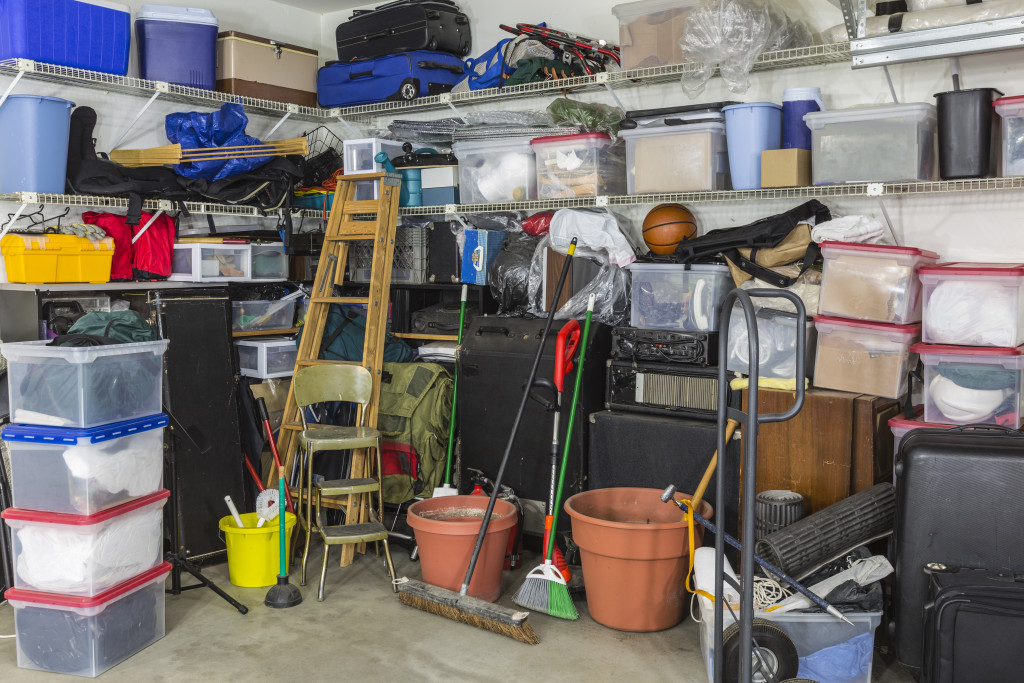- Downsizing a home offers numerous benefits, such as reduced expenses, less clutter, and easier maintenance.
- The average size of American homes is 2,400 square feet.
- Decluttering possessions and choosing a higher-quality roof are essential steps in downsizing.
- Creating a budget and researching smaller homes can help find the perfect place to call home.
- Hiring a reliable local moving company is essential for a successful move.
Homeownership is the dream of every individual, and owning a beautiful house is a fulfilling experience. While larger homes may seem attractive, with ample space, decorating freedom, and plenty of room for the family, there comes a time when you consider downsizing. The thought of downsizing your home may seem daunting, especially if you’re comfortable in your current residence. However, downsizing yields numerous benefits over living in a large house full of unnecessary items.
The Average Size of American Homes
It’s estimated that the average size of American homes is around 2,400 square feet! That’s a lot of space to fill (and clean!), and while the idea may sound attractive, downsizing has many benefits.
Benefits of Downsizing
There are various benefits to downsizing. Here are some of them:
Reduced Expenses
One of the main advantages of downsizing is the reduced expenses. Large homes come with high property taxes, repairs, and maintenance. With a smaller home, you cut back on these expenses. You no longer have to pay for unused space, saving you money on energy bills and maintenance costs. Reducing your expenses by downsizing gives you extra income to invest in other vital areas of your life, such as funding a long-awaited trip, building a business, or retirement savings.

Less Clutter
Over the years, you probably have accumulated stuff you no longer use and occupy most of your space. Downsizing enables you to trim your possessions, keeping only items with sentimental and practical value. With adequate space, you’ll feel more organized and won’t have the need to clean up after yourself constantly. A clutter-free home makes it easier to concentrate and be more productive and creates a more calm and relaxing environment. It can also reduce stress over time, giving you another great reason to downsize!
Easier to Maintain
One of the struggles of owning a bigger house is the constant maintenance that comes with it. It’s exhausting and time-consuming, from fixing systems and replacing broken appliances to cleaning a vast space. Updates and repairs with a smaller home are straightforward, quick, and less costly. With fewer rooms, you can spend less time on upkeep and more on enjoyable activities like relaxation, hobbies, and quality time with loved ones.
Environmental Impact
Downsizing your home positively impacts the environment. Smaller homes use fewer resources than larger homes, which means reduced energy consumption, less waste, and conserving our natural resources. In addition to ecological benefits, you set an example for others to follow, inspiring them to live sustainably and environmentally friendly lives.
More Opportunities for Community
Usually, smaller homes are closer to shopping, restaurants, and recreational areas, which provide more opportunities for a sense of community. Plus, With a smaller home and lower expenses, you may have more time to dedicate to volunteer work or participate in local events, increasing your sense of belonging to your community. Finally, downsizing may open you up to the possibility of a closer-knit community of individuals who share your interests and values.
Tips For Downsizing Your Home
Now you know the benefits of downsizing your home, here are five tips you can do exactly that:
Declutter
The first step is by far the most difficult – downsizing your possessions. Go through each room and ask yourself if you truly need that item or it’s merely taking up space. Anything you don’t need, like clothes and furniture, can be donated to charity or sold.
Choose a Higher Quality Roof
The roof is one of the most expensive things to maintain in your home. That’s why it’s better to go for quality when it comes to downsizing. Contact your local roofer and ask what’s the best roof for your home. Certain materials, such as metal, asphalt, and tile, are sturdier than others.

Create a Budget
Creating a budget helps keep track of your finances when purchasing a home. This also allows you to determine how much money is available for the down payment and other fees associated with buying a new property.
Research for Smaller Homes
If renovation doesn’t work out for you, it might be good to look for smaller homes. When looking for smaller homes, assess the total living space available and the amenities offered by the surrounding area. And make sure to inspect every corner of the house before making an offer; ensure all appliances work correctly and that the walls, floors, and roof are in good condition.
Research Local Moving Companies
If you’re moving from a larger home to a smaller one, hire a reliable local moving company. Experience counts when relocating efficiently and securely; they have the resources and know-how to carry out your move without any issues.
Downsizing your home can be intimidating, but it yields advantageous results: lower costs, less clutter, easier maintenance, improved environmental sustainability, and more community opportunities. Using these tips will help make the process of downsizing easier while increasing your chances of finding the perfect place for you and your family to call home.
